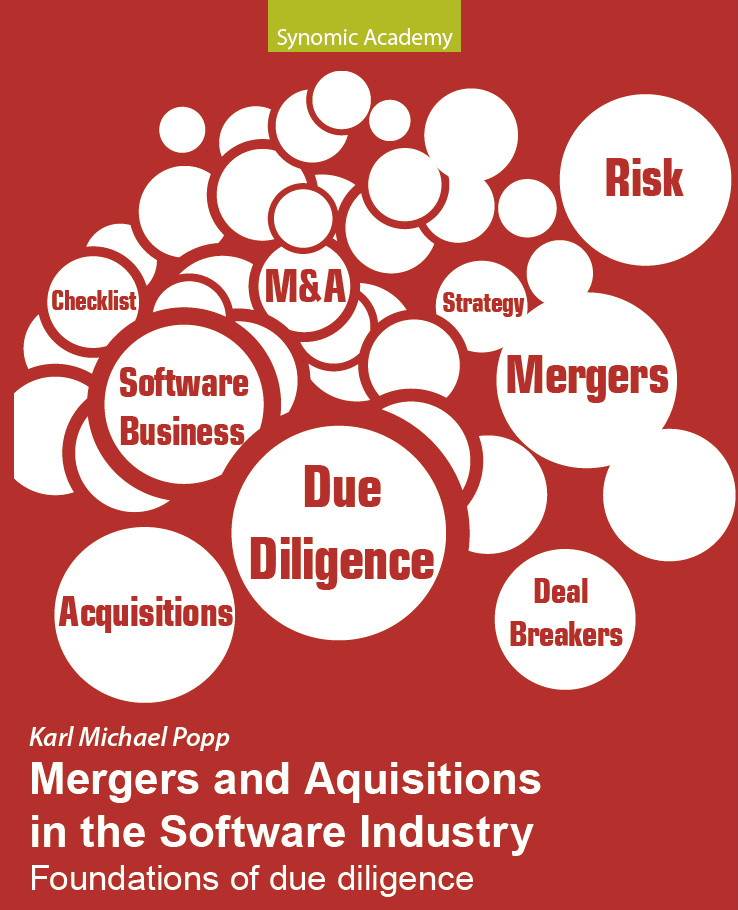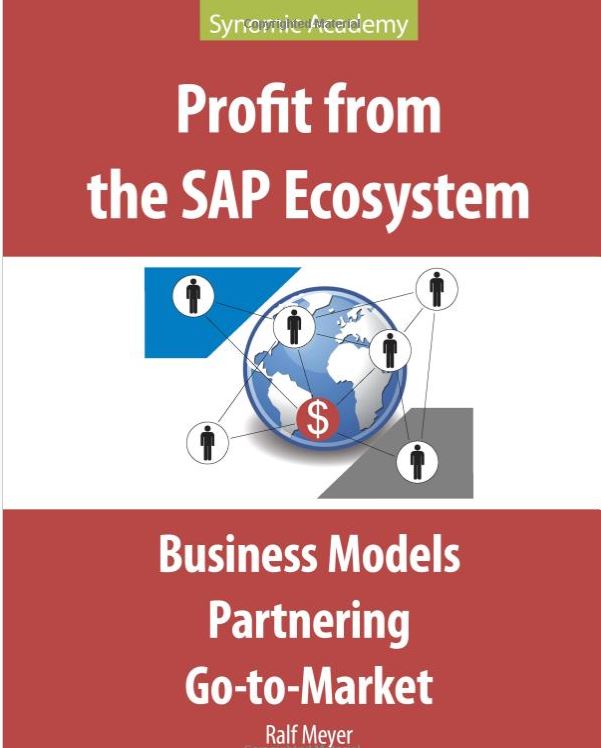Aggregator business models: full story and future trends
Get into discussions with us at the European Workshop on software ecosystems
Get tickets here https://ewseco.squarespace.com/tickets
Introduction To Aggregator Business Models
Aggregator business models are becoming increasingly popular as a way to provide consumers with a convenient and efficient way to access a wide range of products or services. Essentially, an aggregator brings together multiple suppliers or providers in one place, allowing customers to browse and compare options without having to visit multiple websites or physical locations. This model has been successfully applied in various industries such as travel, e-commerce, and finance. [Sources: 0, 1]
Aggregators act as intermediaries between the consumer and the supplier, offering benefits such as price comparison, reviews and ratings, and simplified booking processes. They also provide an opportunity for smaller businesses or service providers to reach a wider audience without having to invest heavily in marketing or infrastructure. However, the aggregator business model is not without its challenges such as managing relationships with suppliers and ensuring quality control across the platform. [Sources: 2, 3, 4]
Despite these challenges, the aggregator model is expected to continue growing in popularity as consumers demand greater convenience and choice in their purchasing decisions. [Sources: 5]
The Rise of Aggregator Platforms
The rise of aggregator platforms has been a significant development in the business world over the past decade. These platforms serve as intermediaries between consumers and suppliers, providing a convenient way for users to access multiple products or services from different providers in one place. Aggregator businesses have disrupted traditional industries such as transportation, hospitality, and media by creating new channels for customer acquisition and revenue generation. [Sources: 6, 7, 8]
For example, Uber's ride-hailing platform connects passengers with drivers, while Airbnb allows homeowners to rent out their homes to travelers. Aggregators have also transformed the way content is consumed by offering curated news feeds and personalized recommendations through social media platforms like Facebook and Twitter. With their ability to gather vast amounts of data on user behavior, aggregator businesses have become incredibly valuable and influential players in today's economy. [Sources: 1, 9, 10]
However, they also face challenges such as regulatory scrutiny and competition from established players in their respective industries. [Sources: 11]
How Aggregator Platforms Operate
Aggregator platforms are business models that bring together a variety of products or services from different sources and present them to consumers in one convenient location. These platforms operate by collecting data from multiple sources, using algorithms to analyze this data and present it to users in a coherent way. They then generate revenue through commissions, advertisements, or subscription fees. [Sources: 0, 12, 13]
To ensure that they remain relevant and attractive to consumers, aggregator platforms must constantly update their offerings and tailor their services to meet the needs of their target audience. They also need to maintain strong relationships with suppliers, negotiating favorable deals with them in order to offer competitive prices and attract customers. [Sources: 14, 15]
However, aggregator platforms face certain challenges such as maintaining quality control over the products or services they offer, protecting customer data privacy and ensuring that suppliers receive fair compensation for their offerings. Despite these challenges, the popularity of aggregator platforms continues to grow as consumers seek out convenient ways to access a wide range of products and services. [Sources: 7, 16]
Benefits And Challenges of Aggregator Models for Businesses
Aggregator business models have gained immense popularity in recent years due to their ability to provide consumers with a one-stop-shop for multiple products or services. The benefits of aggregator models for businesses include increased visibility and exposure, as well as the ability to reach a wider audience. By partnering with an aggregator platform, businesses can benefit from shared marketing efforts and cross-promotion with other brands on the platform. [Sources: 17, 18, 19]
Additionally, these models can help businesses streamline their operations by outsourcing certain functions such as logistics or customer service. However, there are also challenges associated with aggregator models. One major challenge is the potential loss of control over branding and customer relationships. Businesses must ensure that their brand identity is maintained on the aggregator platform and that they retain ownership of customer data. [Sources: 20, 21, 22, 23]
Another challenge is the risk of becoming too dependent on the aggregator platform for sales, which can result in decreased bargaining power and revenue sharing negotiations. [Sources: 19]
Examples of Successful Aggregator Businesses
Aggregator business models have become increasingly popular in recent years, with successful companies like Airbnb, Uber, and TripAdvisor leading the way. These companies are known for bringing together multiple sources of information or services into one platform, making it easier for consumers to find what they need. [Sources: 0, 24]
One example of a successful aggregator business is Zillow, which aggregates real estate listings from various sources and provides users with a comprehensive database of homes for sale or rent. Another example is Booking.com, which aggregates hotel listings from all over the world and allows users to book rooms directly through their platform. [Sources: 19, 25]
Amazon is another well-known aggregator business that has disrupted multiple industries with their wide range of products and services available on their platform. They have also expanded into content aggregation by offering streaming services like Amazon Prime Video. [Sources: 25, 26]
Overall, successful aggregator businesses offer convenience and efficiency to consumers by bringing together information or services from various sources in one place. [Sources: 27]
Future Trends And Potential Growth In The Aggregator Industry
The aggregator business model has already revolutionized several industries, and its impact is only set to grow in the future. One of the most significant trends in this industry is the increasing use of AI and machine learning algorithms to improve the quality of data aggregation. As these technologies become more advanced, aggregators will be able to provide more personalized services to their customers. [Sources: 28, 29, 30]
Another significant trend is the expansion of aggregator services into new industries. For example, we are already seeing aggregators enter the healthcare and real estate sectors, and this trend is likely to continue as businesses look for ways to streamline complex processes. [Sources: 16, 31]
Finally, we can expect to see increased consolidation within the aggregator industry as larger players acquire smaller ones. This will help established aggregators expand their reach and improve their market share, while also providing a more comprehensive range of services for customers. Overall, there are many reasons to be optimistic about the future growth potential of aggregator business models. [Sources: 16, 32, 33]
Conclusion: Is An Aggregator Model Right For Your Business?
In conclusion, the aggregator business model can be a lucrative option for businesses looking to expand their reach and increase revenue. However, it is important to thoroughly evaluate whether this model aligns with your company's goals and values. Aggregators rely heavily on partnerships with other businesses and may require significant investment in technology and infrastructure. Additionally, there are potential risks such as loss of control over customer data and brand identity. [Sources: 21, 34, 35, 36]
It is crucial to carefully consider the benefits and drawbacks before deciding if an aggregator model is right for your business. If you determine that it is a good fit, it is important to choose reputable partners who share your values and ensure that you have clear contractual agreements in place. Overall, an aggregator model can be a valuable addition to your business strategy when implemented thoughtfully and strategically. [Sources: 32, 37, 38]
Now, continue to
Aggregator business models: Ten aggregator company examples
Revenue Models For Aggregator Companies
Ten steps to create an aggregator company
Aggregator business models: full story and future trends
Platform Business Models – the basics
Building on the shoulders of giants. Shortcuts to Platform Business Success
Sources
[0]: https://finmodelslab.com/blogs/blog/different-types-business-models
[1]: https://www.techtarget.com/searchcontentmanagement/definition/content-aggregator
[2]: https://geomotiv.com/blog/how-to-develop-ecommerce-aggregators/
[3]: https://digitalenterprise.org/models/aggregator/
[4]: https://www.linkedin.com/pulse/aggregator-business-model-complete-guide-raman-sama
[5]: https://www.apptunix.com/blog/aggregator-business-model-a-complete-guide/
[6]: https://www.f2fmart.com/en-us/blogs/business-updates/why-is-brand-aggregation-the-future-of-e-commerce
[7]: https://www.code-brew.com/aggregator-marketplaces-how-b2c-aggregators-work/
[8]: https://www.forbes.com/sites/bernardmarr/2023/03/14/the-7-most-successful-business-models-of-the-digital-era/
[9]: https://codetiburon.com/business-model-patterns-online-enterprise/
[10]: https://hevodata.com/learn/7-best-data-aggregation-companies/
[11]: https://blog.stoplight.io/api-aggregator-challenges-in-the-fintech-ecommerce-world
[12]: https://improvado.io/blog/what-is-data-aggregation
[13]: https://bstrategyhub.com/50-types-of-business-models-the-best-examples-of-companies-using-it/
[14]: https://hbr.org/2022/09/building-your-own-brand-platform
[15]: https://www.zonguru.com/blog/amazon-aggregators
[16]: https://strategyofsecurity.com/an-intro-to-consolidation-and-aggregation-in-cybersecurity/
[17]: https://www.drkarlpopp.com/karl-michael-popps-blog/aggregator-business-models
[18]: https://ceopedia.org/index.php/Aggregator_model
[19]: https://productmint.com/aggregator-business-model/
[20]: https://tonyhymes.info/2018/03/05/the-5-e-commerce-business-models/
[21]: https://www.zoho.com/subscriptions/guides/what-is-recurring-revenue-business-model.html
[22]: https://upstreamaginsights.substack.com/p/aggregator-marketplaces-vs-platform
[23]: https://timebusinessnews.com/benefits-of-aggregator-vs-marketplace-business-model-for-vendors/
[24]: https://coachfoundation.com/blog/creating-business-model/
[25]: https://alejandrocremades.com/what-is-a-business-model/
[26]: https://scalebrand.com/challenges-for-aggregators/
[27]: https://businessmodelanalyst.com/aggregator-business-model/
[28]: https://www.slideshare.net/MatteoBoccadoro/mobility-aggregator-business-model-canvas
[29]: https://nuoptima.com/aggregators
[30]: https://www.orangemantra.com/blog/how-ecommerce-web-development-powers-disruptive-aggregator-models/
[31]: https://www.pangeagroup.com/perspectives/firms-need-business-model-change-not-blockchain/
[32]: https://thebusiness-strides.com/what-is-an-aggregator-business-model/
[33]: https://www.thinkwithniche.com/amp/detail/what-is-a-business-model-and-the-types-of-business-model
[34]: https://www.hindawi.com/journals/scn/2022/9572908/
[35]: https://www.bcg.com/publications/2020/how-winners-build-business-from-data
[36]: https://myfbaprep.com/blog/ecommerce-aggregator-mistakes/
[37]: https://www.mews.com/en/blog/hotel-aggregator
[38]: https://digitalenterprise.org/models/









